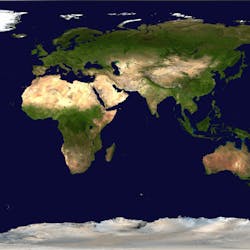Since 13 May 2022, cases of monkeypox have been reported to WHO from 12 member states that are not endemic for monkeypox virus, across three WHO regions, according to a news release.
Epidemiological investigations are ongoing, however, reported cases thus far have no established travel links to endemic areas. Based on currently available information, cases have mainly but not exclusively been identified amongst men who have sex with men (MSM) seeking care in primary care and sexual health clinics.
The objective of this Disease Outbreak News is to raise awareness, inform readiness and response efforts, and provide technical guidance for immediate recommended actions.
The situation is evolving and WHO expects there will be more cases of monkeypox identified as surveillance expands in non-endemic countries. Immediate actions focus on informing those who may be most at risk for monkeypox infection with accurate information, in order to stop further spread.
Monkeypox is a viral zoonosis (a virus transmitted to humans from animals) with symptoms very similar to those seen in the past in smallpox patients, although it is clinically less severe. It is caused by the monkeypox virus which belongs to the orthopoxvirus genus of the Poxviridae family. There are two clades of monkeypox virus: the West African clade and the Congo Basin (Central African) clade. The name monkeypox originates from the initial discovery of the virus in monkeys in a Danish laboratory in 1958. The first human case was identified in a child in the Democratic Republic of the Congo in 1970.
Monkeypox virus is transmitted from one person to another by close contact with lesions, body fluids, respiratory droplets and contaminated materials such as bedding. The incubation period of monkeypox is usually from 6 to 13 days but can range from 5 to 21 days.
Current available evidence suggests that those who are most at risk are those who have had close physical contact with someone with monkeypox, while they are symptomatic. WHO is also working to provide guidance to protect frontline healthcare providers and other health workers who may be at risk such as cleaners. WHO will be providing more technical recommendations in the coming days.
Endemic monkeypox disease is normally geographically limited to West and Central Africa. The identification of confirmed and suspected cases of monkeypox without any travel history to an endemic area in multiple countries is atypical, hence, there is an urgent need to raise awareness about monkeypox and undertake comprehensive case finding and isolation (provided with supportive care), contact tracing and supportive care to limit further onward transmission.

